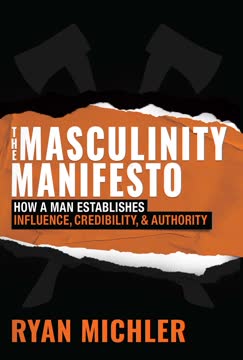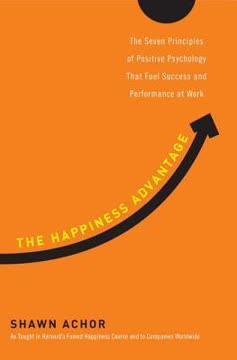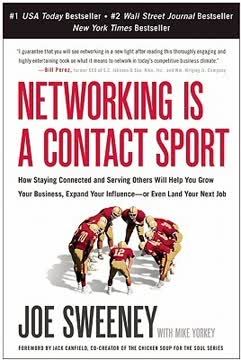Key Takeaways
1. Networking is about giving, not getting
Networking is not about figuring out how to use business contacts for your personal gain.
Reframe your mindset. Approach networking as an opportunity to offer value to others without expecting immediate reciprocation. This mindset shift transforms networking from a self-serving activity into a mutually beneficial exchange. By focusing on how you can help others, you naturally build stronger, more authentic relationships.
Practice generosity. Look for ways to assist your contacts:
- Share relevant information or resources
- Make introductions to valuable connections
- Offer your expertise or skills
- Provide emotional support or encouragement
By consistently giving, you create a positive reputation and foster goodwill. This approach ultimately leads to more opportunities and stronger relationships in the long run.
2. The 5/10/15 program: A structured approach to networking
If you faithfully incorporate this plan of action, you'll see your networking efforts propel into the stratosphere.
Daily networking targets. The 5/10/15 program provides a concrete framework for consistent networking:
- 5: Have five meetings or encounters
- 10: Send ten pieces of correspondence (letters, emails, etc.)
- 15: Make fifteen phone calls
Track your progress. Use a simple spreadsheet or notebook to monitor your daily networking activities. This accountability helps ensure you maintain a steady pace of outreach and relationship-building.
Quality over quantity. While the numbers provide structure, focus on meaningful interactions. A thoughtful, personalized note or a productive meeting is more valuable than superficial outreach. Tailor your approach to each contact, considering their interests and potential ways you can add value to their lives or work.
3. Develop wingmen: Your personal board of directors
A wingman is someone who'll fly by your side, prepared to watch your flank and see things that you don't see.
Identify potential wingmen. Look for trusted individuals who:
- Have complementary skills or experiences
- Offer honest feedback and support
- Share your values and goals
- Are willing to commit to a mutual support relationship
Cultivate wingman relationships. Nurture these connections through:
- Regular check-ins (weekly or monthly)
- Open and vulnerable communication
- Offering support and accountability
- Celebrating each other's successes
Leverage collective wisdom. Your wingmen serve as a personal advisory board, providing diverse perspectives and insights. Consult them for major decisions, brainstorming sessions, and navigating challenges in your personal and professional life.
4. Leverage your passions to expand your network
What's your passion? What do you like to do when you're not working? You can turn that passion into a great way to network if you want.
Identify your interests. Make a list of your hobbies, causes you care about, and activities you enjoy. These areas of passion provide natural networking opportunities with like-minded individuals.
Engage in passion-driven networking. Examples:
- Join clubs or organizations related to your interests
- Volunteer for causes you support
- Attend or organize events centered around your passions
- Share your expertise through teaching or mentoring
Create value through shared interests. By connecting through mutual passions, you build more authentic relationships. These connections often lead to unexpected opportunities and collaborations that extend beyond your initial shared interest.
5. Set big, wild, audacious goals (BWAGs) to drive networking efforts
When it comes to networking, it never hurts to have a BWAG in life—a Big, Wild, Audacious Goal.
Define your BWAG. Identify an ambitious, inspirational goal that pushes you beyond your comfort zone. This goal should excite and motivate you, providing a clear direction for your networking efforts.
Align networking with your BWAG. Strategically focus your networking activities to support your goal:
- Identify key individuals or organizations that can help you achieve your BWAG
- Attend events or join groups related to your goal
- Seek mentors or advisors with relevant experience
- Share your BWAG with your network to attract support and opportunities
Embrace the journey. Recognize that pursuing a BWAG is as valuable as achieving it. The process of working towards your goal will naturally expand your network and open up unexpected possibilities.
6. Navigate gender differences in networking styles
Men and women have fundamentally different networking styles.
Understand communication differences. Generally:
- Men tend to focus on exchanging information and establishing status
- Women often prioritize building rapport and connections
Adapt your approach. When networking with the opposite gender:
- Men: Focus more on building rapport before diving into business
- Women: Be more direct in stating your goals and asking for what you need
Leverage strengths. Both styles have value:
- Men can learn from women's relationship-building skills
- Women can adopt men's directness in pursuing opportunities
Create inclusive environments. When organizing networking events or leading teams, ensure a balance that allows both styles to thrive. Encourage a mix of activities that cater to different networking preferences.
7. Balance online and offline networking in the digital age
Being virtually connected and personally connected are two entirely different things.
Leverage digital tools. Use social media and online platforms to:
- Research potential contacts
- Maintain loose connections with a wider network
- Share valuable content and insights
Prioritize in-person connections. Whenever possible, move online relationships offline:
- Schedule face-to-face meetings or video calls
- Attend industry events and conferences
- Organize or join local meetups
Quality over quantity. Focus on building meaningful relationships rather than accumulating a large number of superficial online connections. Invest time in nurturing key relationships through personalized communication and in-person interactions.
8. Master networkers create value through connections
I measure whether someone is a master networker not by the quality or quantity of their network but by what they've accomplished with and for others.
Cultivate a giving mindset. Master networkers consistently look for ways to add value to their connections' lives and work. They act as connectors, problem-solvers, and supporters.
Build diverse relationships. Expand your network across various industries, backgrounds, and levels of seniority. This diversity allows you to create unique value by bridging different worlds and perspectives.
Think long-term. Focus on building lasting relationships rather than seeking immediate gains. Master networkers understand that the true power of networking manifests over time through trust, mutual support, and collaborative opportunities.
Stay passionate and curious. Maintain genuine enthusiasm for meeting new people and learning about their work and lives. This authenticity and interest in others naturally attracts opportunities and fosters strong connections.
Last updated:
FAQ
What is Networking Is a Contact Sport by Joe Sweeney about?
- Active, giving-based networking: The book frames networking as an active, ongoing process where giving and serving others is the foundation for building meaningful relationships.
- Contact sport analogy: Sweeney likens networking to a contact sport, emphasizing persistence, creativity, and genuine engagement.
- Personal and professional growth: The book shows how networking can help grow your business, expand your influence, and even land your next job.
Why should I read Networking Is a Contact Sport by Joe Sweeney?
- Practical, actionable advice: The book offers real-life stories and step-by-step strategies from Sweeney’s 25+ years of networking in business and sports.
- Comprehensive coverage: It addresses networking basics, personality types, social media, job hunting, and building a support system.
- Mindset and inspiration: Readers are encouraged to adopt a positive, giving mindset and see networking as a way to enrich all areas of life, not just career.
What are the key takeaways from Networking Is a Contact Sport by Joe Sweeney?
- Give before you get: True networking is about helping others without expecting immediate returns.
- Build genuine relationships: Focus on trust, service, and meaningful connections rather than transactional exchanges.
- Consistency matters: Use structured approaches like the 5/10/15 program to maintain regular networking efforts.
- Leverage your passions: Use your interests and community involvement as natural platforms for networking.
How does Joe Sweeney define networking differently in Networking Is a Contact Sport?
- Not quid pro quo: Sweeney rejects the “you scratch my back, I’ll scratch yours” mentality, advocating for giving without strings attached.
- Service-oriented approach: Networking is about looking for ways to help others first, which naturally leads to opportunities.
- Relationship and trust focus: Building trust and offering value are at the heart of Sweeney’s networking philosophy.
What is the 5/10/15 program in Networking Is a Contact Sport and how does it work?
- Structured daily plan: The 5/10/15 program involves aiming for 5 meetings, 10 pieces of correspondence, and 15 phone calls each day.
- Accountability and consistency: This system helps maintain steady networking activity, turning contacts into leads and opportunities.
- Adaptable tracking: Sweeney uses a printed binder, but readers can adapt the method digitally or on paper to fit their style.
What is a “wingman” according to Joe Sweeney in Networking Is a Contact Sport?
- Trusted confidant: A wingman is someone who listens, offers wise counsel, and supports you in personal and professional matters.
- Accountability and feedback: Wingmen help keep you on track, challenge you, and provide honest feedback during tough decisions.
- Multiple perspectives: Sweeney recommends having several wingmen from diverse backgrounds for broader insights and support.
How do you find and build relationships with wingmen as advised in Networking Is a Contact Sport?
- Start with trusted contacts: Review your network and approach those you trust, explaining the wingman concept.
- Formalize the relationship: If the chemistry is right, directly ask, “Would you like to be my wingman?” and set regular check-ins.
- Maintain discretion: Keep wingmen’s identities private to allow for honest feedback and candid conversations.
How does Networking Is a Contact Sport by Joe Sweeney recommend using passions to enhance networking?
- Leverage your interests: Use activities you enjoy, such as sports or hobbies, as natural platforms to meet people and build relationships.
- Community involvement: Participate in local events or causes related to your passion to connect with like-minded individuals.
- Real-life examples: Sweeney’s basketball clinics and camps in his driveway helped him expand his network within his community.
What role does personality play in networking according to Networking Is a Contact Sport by Joe Sweeney?
- Four personality types: The book identifies Captain (leader), Social Director (enthusiast), Steward (loyalist), and Navigator (analytical).
- Tailor your approach: Understanding these types helps you communicate effectively and build rapport by matching others’ styles.
- Self-awareness: Knowing your own type allows you to leverage strengths and address weaknesses in your networking efforts.
How does Networking Is a Contact Sport by Joe Sweeney address networking for job seekers and the unemployed?
- Proactive vs. passive: Sweeney stresses that networking is the difference between being proactive and passive in a job search.
- Systematic outreach: Using the 5/10/15 program, job seekers can systematically reach out to contacts, increasing their chances of finding opportunities.
- Mindset and flexibility: The book encourages a positive attitude, willingness to reinvent oneself, and even working for free or relocating if necessary.
What advice does Networking Is a Contact Sport by Joe Sweeney give about social media and networking?
- Tool, not replacement: Social media is useful for research and staying connected but cannot replace face-to-face interactions.
- Quality over quantity: Meaningful relationships with a few people are more valuable than hundreds of superficial online connections.
- Best practices: Use social media moderately, avoid oversharing, and complement online connections with personal calls, meetings, and handwritten notes.
What are the best quotes from Networking Is a Contact Sport by Joe Sweeney and what do they mean?
- “Networking is a place where you go to give, not to get.” This encapsulates the book’s philosophy of serving others first.
- “The difference between networking and not working is one letter.” Highlights the crucial role of networking in job searching and career advancement.
- “Act like you belong, no matter where you are.” Emphasizes the importance of confidence and presence in successful networking.
Review Summary
Networking Is a Contact Sport receives mostly positive reviews, with an average rating of 3.78/5. Readers appreciate Sweeney's approach to networking as giving rather than getting, finding it inspirational and practical. Many praise the personal anecdotes and actionable advice. Some reviewers note the book's extroverted perspective and suggest it may not be ideal for introverts. Critics mention repetition and a focus on the author's connections. Overall, readers find the book valuable for improving networking skills and building relationships.
Similar Books








Download PDF
Download EPUB
.epub digital book format is ideal for reading ebooks on phones, tablets, and e-readers.





